第49章 WHICH TREATS OF THE KRAKEN(3)
The occasions upon which these gigantic cuttle-fish appear at the sea surface must, I think, be very rare.From their construction, they appear fitted only to grope among the rocks at the bottom of the ocean.Their mode of progression is backward, by the forcible ejection of a jet of water from an orifice in the neck, besides the rectum or cloaca.Consequently their normal position is head-downward, and with tentacles spread out like the ribs of an umbrella--eight of them at least; the two long ones, like the antennae of an insect, rove unceasingly around, seeking prey.
The imagination can hardly picture a more terrible object than one of these huge monsters brooding in the ocean depths, the gloom of his surroundings increased by the inky fluid (sepia)which he secretes in copious quantities, every cup-shaped disc, of the hundreds with which the restless tentacles are furnished, ready at the slightest touch to grip whatever is near, not only by suction, but by the great claws set all round within its circle.And in the centre of this net-work of living traps is the chasm-like mouth, with its enormous parrot-beak, ready to rend piecemeal whatever is held by the tentaculae.The very thought of it makes one's flesh crawl.Well did Michelet term them "the insatiable nightmares of the sea."Yet, but for them, how would such great creatures as the sperm whale be fed? Unable, from their bulk, to capture small fish except by accident, and, by the absence of a sieve of baleen, precluded from subsisting upon the tiny crustacea, which support the MYSTICETAE, the cachalots seem to be confined for their diet to cuttle-fish, and, from their point of view, the bigger the latter are the better.How big they may become in the depths of the sea, no man knoweth; but it is unlikely that even the vast specimens seen are full-sized, since they have only come to the surface under abnormal conditions, like the one I have attempted to describe, who had evidently been dragged up by his relentless foe.
Creatures like these, who inhabit deep waters, and do not need to come to the surface by the exigencies of their existence, necessarily present many obstacles to accurate investigation of their structure and habits; but, from the few specimens that have been obtained of late years, fairly comprehensive details have been compiled, and may be studied in various French and German works, of which the Natural History Museum at South Kensington possesses copies.These, through the courtesy of the authorities in charge, are easily accessible to students who wish to prosecute the study of this wonderful branch of the great mollusca family.
When we commenced to cut in our whale next morning, the sea was fairly alive with fish of innumerable kinds, while a vast host of sea-birds, as usual, waited impatiently for the breaking-up of the huge carcass, which they knew would afford them no end of a feast.An untoward accident, which happened soon after the work was started, gave the waiting myriads immense satisfaction, although the unfortunate second mate, whose slip of the spade was responsible, came in for a hurricane of vituperation from the enraged skipper.It was in detaching the case from the head --always a work of difficulty, and requiring great precision of aim.Just as Mr.Cruce made a powerful thrust with his keen t ool, the vessel rolled, and the blow, missing the score in which he was cutting, fell upon the case instead, piercing its side.
For a few minutes the result was unnoticed amidst the wash of the ragged edges of the cut, but presently a long streak of white, wax-like pieces floating astern, and a tremendous commotion among the birds, told the story.The liquid spermaceti was leaking rapidly from the case, turning solid as it got into the cool water.Nothing could be done to stop the waste, which, as it was a large whale, was not less than twenty barrels, or about two tuns of pure spermaceti.An accident of this kind never failed to make our skipper almost unbearable in his temper for some days afterwards; and, to do him justice, he did not discriminate very carefully as to who felt his resentment besides its immediate cause.
Therefore we had all a rough time of it while his angry fit lasted, which was a whole week, or until all was shipshape again.
Meanwhile we were edging gradually through the Malacca Straits and around the big island of Borneo, never going very near the land on account of the great and numerous dangers attendant upon coasting in those localities to any but those continually engaged in such a business.
Indeed, all navigation in those seas to sailing vessels is dangerous, and requires the greatest care.Often we were obliged at a minute's notice to let go the anchor, although out of sight of land, some rapid current being found carrying us swiftly towards a shoal or race, where we might come to grief.Yet there was no fuss or hurry, the same leisurely old system was continued, and worked as well as ever.But it was not apparent why we were threading the tortuous and difficult waters of the Indian Archipelago.No whales of any kind were seen for at least a month, although, from our leisurely mode of sailing, it was evident that they were looked for.
An occasional native craft came alongside, desirous of bartering fish, which we did not want, being able to catch all we needed as readily almost as they were.Fruit and vegetables we could not get at such distances from land, for the small canoes that lie in wait for passing ships do not of course venture far from home.